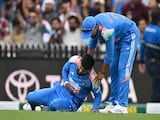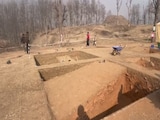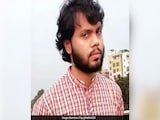In a daunting yet delicate operation, doctors at AIIMS Hospital in Bhopal performed a unique brain surgery to save a man's life while he kept awake and played the piano along with reciting the Hanuman Chalisa.
The doctors performed a successful awake craniotomy -- a type of brain surgery where the patient is not put under general anesthesia to constantly map their motor functions and reactions -- to remove a tumour in the man's brain.
The 28-year-old resident of Bihar's Buxar had complained of frequent seizures and doctors determined that they were caused by a tumour in his brain. Keeping in mind the man's young age and the tumour's proximity to his motor cortex -- the area of the brain that controls physical movements -- doctors opted to perform awake brain surgery to minimise the risk of debilitating him.
Videos of the surgery show the man lying on the operation table and playing a keyboard piano while doctor performed the critical procedure. As per surgeons, the man showed no signs of stress during the entire process as the doctor kept constantly talking to him. He also read from a newspaper and recited the Hanuman Chalisa while playing manjira (cymbals) like he usually does when he goes to the temple.
The man was playing the piano even at the moment the tumour was removed from his brain.
"The tumour has been removed successfully and the patient is recovering fully. He has shown no signs of adverse effects from the procedure and has full control of his motor functions," said Dr. Sumit Raj, Associate Professor, Neurosurgery who was part of the team that performed the surgery.
Due to better results, awake craniotomies have become quite popular with many doctors adopting the procedure in the last few years.















